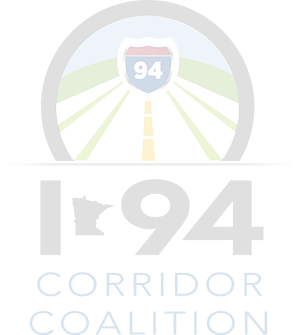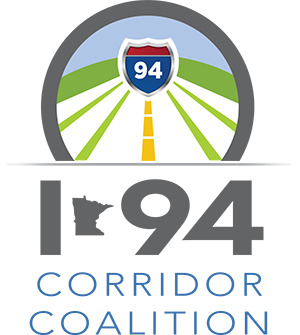By J. Patrick Coolican and Ricardo Lopez Star Tribune
Both sides agree on transportation spending of $600M a year, but not how to get there.
With less than a week to go, the Minnesota legislative session deadlocked Tuesday after House Republicans offered a new proposal on transportation, taxes and millions of dollars in new construction projects.
“We are prepared to meet the governor in the middle, and agree on a plan that addresses Minnesota’s $6 billion need for road and bridge funding over the next decade,” said House Speaker Kurt Daudt, R-Crown.
The House GOP majority would raise $100 million in car license tab fees, $200 million in bonding and another $300 million from the general fund each year to pay for road and bridge repair. DFL Gov. Mark Dayton’s latest offer would bring in $400 million through increased tab fees.
The transportation measure has emerged as a signature issue of the legislative session, but one where the two sides remain far apart. Dayton met privately with legislative leaders Tuesday evening in hopes of breaking the logjam on other areas, like a statewide construction package.
The leaders broke from the meeting around 7:15 p.m. and said they were no closer to a deal. They planned to resume talks on Wednesday.
Underscoring the stark political divide on transportation, Senate Majority Leader Tom Bakk, DFL-Cook, dug in against House Republicans’ proposal, saying it obligates too much in general fund dollars, and would push the state into a budget deficit during any future economic downturn.
DFL concerns
“The users of the system should pay for the maintenance and build-out of it. That’s not the intent of the general fund,” Bakk said. “The general fund everybody pays into: People who don’t have cars any longer, people who don’t live here. It’s never how we financed transportation infrastructure.”
Dayton criticized what he called misleading accounting in the GOP plan, which includes highway bonding money that is actually part of existing state spending and not new revenue.
Both sides are trying to figure out how to come up with $600 million a year for transportation spending, which remains a top priority for constituents and a diverse range of influential groups, including unions and business leaders.
Inching toward a deal
Despite each side’s inching toward the other and agreeing to an annual price tag of $600 million, differences remain that could ultimately make a major transportation deal impossible, especially given a quickly approaching May 23 adjournment.
The Republican plan includes no money for public transit, and Daudt reiterated that he would like to kill a plan to extend light rail from Minneapolis into the southwest suburbs, a project with strong DFL support.
Meanwhile, there are few metro DFL votes for a transportation plan without money for transit, given average weekday ridership of about 275,000, including 40 percent of downtown Minneapolis workers.
Bakk said transit has to be part of any package to win necessary metro votes in his caucus, and said the latest GOP counteroffer does not include enough in new revenue.
The Republican plan to increase car tab fees would apply to new cars only. On a $15,000 new car, the current fee would rise from $198 to $203. Car tab fees decline as a car ages.
The remainder of the GOP road money would come from bonding money and out of the state’s $900 million budget surplus. In future years, the GOP plan calls for pulling the money from the general fund, which pays for services like schools, parks and public safety.
The DFL wants to avoid using general fund money for roads and bridges because eventually it would require budget cuts in other areas. The GOP’s proposed annual amount of $300 million represents about 1.4 percent of the general fund.
Daudt’s new openness to raising car tabs is a shift, considering the House GOP’s unbending opposition to raising taxes.
The speaker was asked if the increase is a veiled tax increase, and he said it is not, calling it a “user fee.” Just 24 hours before, Daudt called Dayton’s car tab proposal a tax increase.
Family leave proposal dead
Other issues lingering late in the session were starting to fade away Tuesday.
Union leaders held a rally outside the Capitol pushing a highly publicized proposal to create a statewide paid family leave program, one that passed the DFL-controlled Senate.
With time running out to haggle over details, Daudt was blunt: It’s dead, at least for the year.
Dayton said he still sees a path to a deal on transportation.
“I go back to the same message [I’ve said before] which is, ‘Get it done,’ “ Dayton said.
The House GOP renewed its proposal for $450 million in tax cuts. Though no details were released, House Taxes Committee Chairman Rep. Greg Davids, R-Preston, said it would give reductions to Social Security recipients, veterans, college students with loans and parents with child care costs.
Asked about a package of tax breaks and a liquor license to help the Minnesota United build a $150 million soccer stadium in the Midway neighborhood of St. Paul, Davids said the measure is under discussion.
Republicans are expected to release a $800 million public works package Wednesday, up $200 million from an earlier proposal. House Republicans need DFL votes for the state borrowing measure, which requires a supermajority to pass.
House Minority Leader Paul Thissen, DFL-Minneapolis, was dismissive of the GOP plan’s lack of transit money and use of the general fund to pay for transportation spending.
“While it is encouraging that House Republicans are finally acknowledging that new revenue is needed, their latest offer still relies heavily on the general fund, pitting future funding for our schools against roads and bridges,” Thissen said in a statement.


